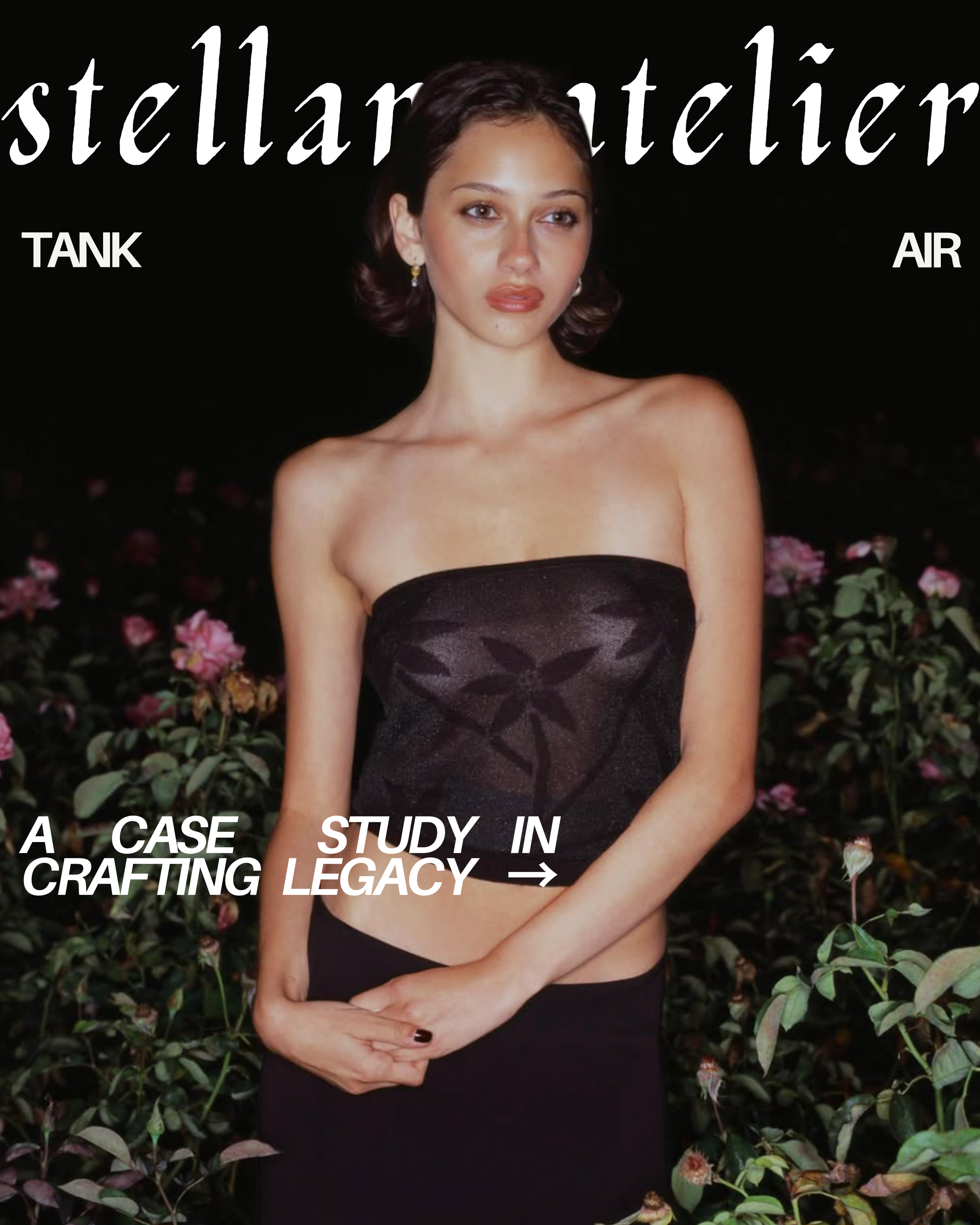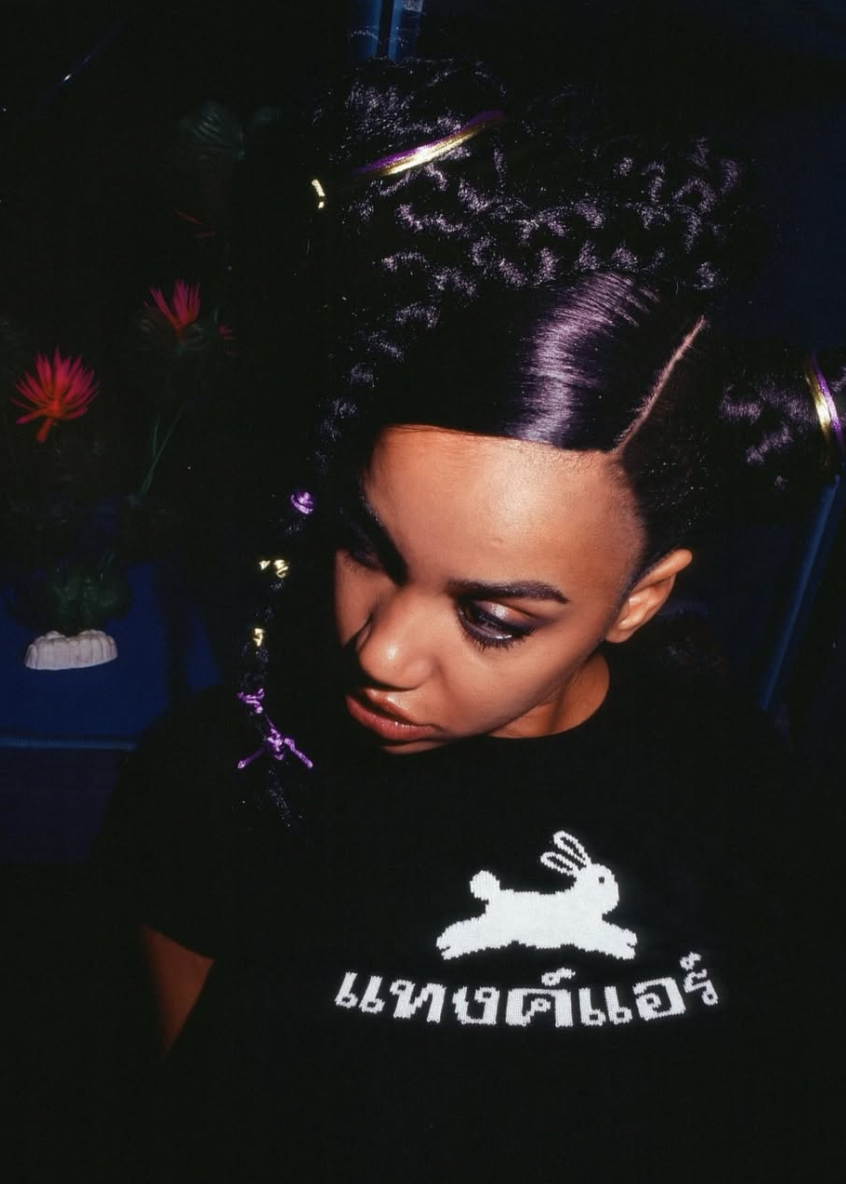💫tankair
In an oversaturated market characterized by fleeting virality and influencer worship, Tank Air stands out as a quietly cult-worthy label rooted in intergenerational intention. The brand’s founder, Clare Robertson-Macleod, built her label from uprooted beginnings in Los Angeles. After her U.S. visa expired, the sudden return to her hometown of Bangkok redefined what Robertson-Macleod aspired toward as a designer. And out of that reckoning came Tank Air, named distinctly after an anagram of her cousin’s name, Katrina. It’s a testament to starting something new with the people who truly see you — an anchor to what grounds you as a creative.
This is a case study in crafting legacy. The approach to brand building here begins with a radical concept: unfiltered authenticity. Rather than manufacture a brand persona, Robertson-Macleod built Tank Air around the Thai women who raised her. “Tank Air has always been inspired by my mom, my aunt, and my grandma,” she says to Vogue. “...I wanted to make pieces of clothing that felt how I felt when I was around them growing up. I always felt empowered.”
Robertson-Macleod’s fancy for fabrics like sueded jersey, four-ply silk, and Japanese cashmere was inherited. Her mother’s hand-me-downs taught her that pieces could carry lineage and live through lifetimes — quietly aging into heirlooms. Storytelling in fiber form. The clothing is built to last, not just physically, but emotionally. Something that weathers the temperamental storm of trend cycles. Tank Air’s limited production schedule and focus on timelessness is a stark rebellion against fast fashion’s dizzying pace. Instead of keeping up, Tank Air holds still.
The lineup blends thick, sculptural staples (spaghetti strap tanks, fitted baby tees, low-rise denim) with soft, modern statements (delicate knits, elaborate bodysuits, beaded mini skirts). Often, the pieces feature iconic odes to Southeast Asian motifs like lotus flowers, Thai lettering and temple garlands. The silhouettes are sexy, but not just for the sake of it. The essentials line (particularly the tank top assortment) has gained a particular kind of popularity amongst the likes of Bella Hadid and Lily Rose Depp. Simplicity, when done this well, feels deliciously decadent.
The brand doesn’t uphold its prices with stiff celebrity placements or influencer marketing. It just… tells the truth. The chic customers naturally follow. And in the flurry of scrutiny around the infamous $75 tank top (albeit an indulgent price tag), one truth held steady: authenticity is its own kind of armor (as is a cost-per-wear mindset). Brands that center emotional luxury like this will quickly start to lead the way. Why must brands like Tank Air justify their value, when heritage houses like Chanel grow more expensive every year —even as their quality declines?
The brand’s digital presence focuses on visual storytelling. The “Tank Air Is Family” campaign — celebrated in Vogue Hong Kong — was inspired by Japanese photographer Masahisa Fukase and portraits he took of his family. Robertson-Macleod wanted the shots to reflect all aspects of family — “the complexities, the pressure, the love, the support, the matriarchy.” The “HOMESICK” campaign video unfolds like a visual poem. A moving meditation, almost. The voiceover belongs to Robertson-Macleod’s mother. The camera movement is fluid and slow and follows a literal boatload of flowers that spell “Tank Air” being peacefully rowed through calm waters in golden sunlight. There’s a quiet (but passionately intimate) cultural honesty in every frame.
While many brands struggle to articulate what they stand for, Tank Air’s mission statement is crystalline in its confidence: “Quality clothing and ideas in service of the matriarchy.” Rather than marketing copy, it’s a lived philosophy — a compass by which every stitch, silhouette, and sentence is guided. Every step of the brand’s journey has been accounted for. Each online order comes with wrapping paper that features botanical photography by Yamamura Gasho, embossed stickers, a decorative silver keycard, and an intricately embroidered dust bag. The recent New York City pop-up experience had blood orange silk drapes in the fitting rooms so that each selfie resembled a work of art. In Robertson-Macleod’s words, design is a “conduit for mindset.” And so the Tank Air brand isn’t just about its clothing; it’s an expression of whimsy — fluid, sensual, and softly strong. A reflection of multidimensional femininity.
We often say that great design is invisible. Tank Air reminds us that great branding can be too. When it’s so rooted in personal truth, the message doesn’t need to be shouted. It simply is. Tank Air is a rare brand asking: what lasts? And in that question lies something radical — the quiet power of being seen, held, remembered and celebrated.






